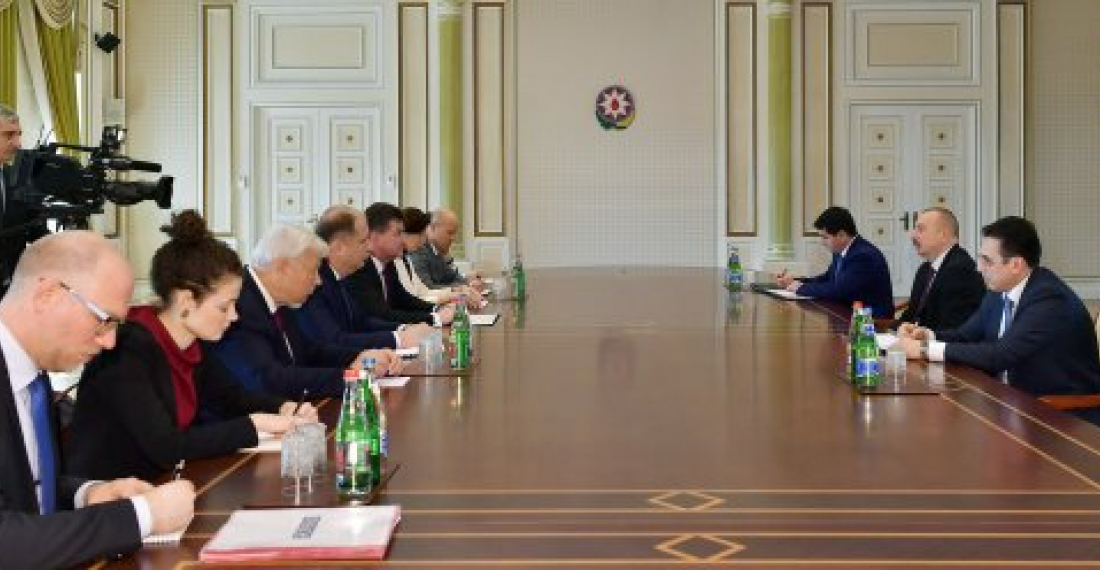Updated with the comments of president Ilham Aliyev
Slovak Foreign Minister Miroslav Lajcak on Tuesday met in Baku with Azerbaijani president, Ilham Aliyev, Laycek is in Baku at the start of his first visit to the region as head of the OSCE rotating chairmanship.
In his welcoming remarks to the Slovak Minister President Aliyev referred to the ongoing processes around the Nagorno-Karabakh conflict. He said Azerbaijan was the side most interested in the earliest peaceful settlement of the conflict, because its territory had been occupied and one million of its citizens displaced. He noted that there are certain dynamics around the negotiation process, including four meetings at the level of foreign ministers, and the three conversation between himself and the Armenian Prime Minister. Ilham Aliyev however said that Armenia did not show any serious intentions to conduct substantive negotiations, and was in fact trying to undermine the negotiation process, the website of the Azerbaijani president reported.
Accompanying the Minister are the Special representative for the South Caucasus, Rudolf Michalka, the Special Representative for the conflict dealt with by the Minsk group (Karabakh conflict) Andrzeij Kasperzyk and other officials.
source; commonspace.eu
photo: President Ilham Aliyev of Azerbaijan met Slovak Foreign Minister and current OSCE Chairman in Office, Mirsolav Lajcek, in Baku on 5 March 2019 (picture courtesy of the press service of the president of Azerbaijan)







